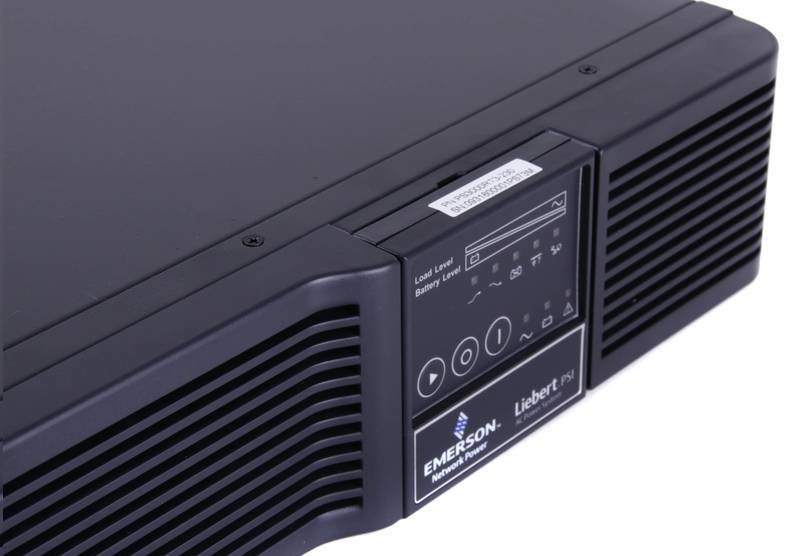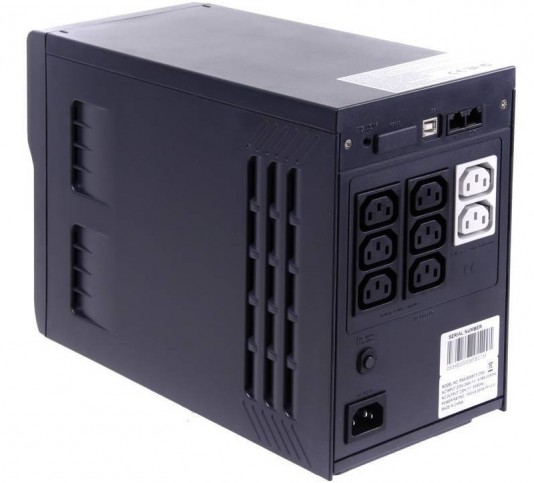 As more applications, devices and systems are added to a network, your businesses dependence on distributed power and reliable computing escalates. This need for a consistent, simple to use and monitorable power supply is now as important as ever within a business, no matter the size.
As more applications, devices and systems are added to a network, your businesses dependence on distributed power and reliable computing escalates. This need for a consistent, simple to use and monitorable power supply is now as important as ever within a business, no matter the size.
UPS, an uninterruptable power supply, is the best way to manage and monitor this influx of power throughout your IT infrastructure.
So why do you need UPS, how does it work and what setup is the best for you?
How does UPS work and why does it protect your PC?
UPS systems are electrical devices that provide a steady stream of power for devices, usually PCs and servers, when the input power source, typically the utility mains, fails.
A UPS is typically used to protect computers, data centres, telecommunication equipment or other electrical devices, where an unexpected power disruption could cause injuries, serious business disruption or data loss.
UPS systems designed for business also tend to offer ways to monitor and manage power flow, before any fluctuations can cause serious harm to a network.
Power outage
Reliable, resilient, fault-tolerant UPS systems are essential to protecting your power against electrical disturbances happening both outside and inside your businesses building.
This can be anything from a storm in the air, to a power cut or even an elevator’s electrical motor draw. These disruptions, however minor, or major, can generate surges, outages and voltage fluctuations that can seriously affect your network.
It critical business have power systems that condition, filter and offer zero transfer time to keep networks working under testing situations.
Why do I need UPS?
UPS protects from all key electrical disturbances that can rattle your system and lower performance, inside or outside your premises.
Dependability– As the AC power adapter is not the primary power path on double-conversion UPS, users can rely on a dependable feed of power from the inverter, not the traditional AC feed which can vary in quality.
View critical status change and parameters to prevent problems from causing disruptions before the issue gets too big to manage.
Intelligent control from the on-board system which allows for UPS network communications, environmental site monitoring and cutting edge performance.
How does UPS help a business?
UPS manufacturers like Emerson offer a number of key benefits with their power systems:
- Controllable outlets, so you can reboot apparatus, prioritize protection and run times for specific applications
- Extended battery runtime, for situations like isolated power supply or unmanned locations.
- Scalability to meet capacity, redundancy or battery times depending on the size and output of your business.
- Maintenance bypass to accommodate loads so IT systems do not need to be powered off, meaning little or no downtime for your organisation.
What are major causes of power-outage?
Naturally the most direct issue with a power outage is the lack of electricity to your network or crevice. As networks are the backbone of a business IT infrastructure a constant source and quality of power is crucial to an organisation.
Costs to your business
Investing in a UPS will naturally involve an initial set up cost, however the saving that can be made in the long run are easy to see.
First, think about the cost of downtime. Many business know minutes even seconds of downtime can equate to a huge loss of revenue due to lapses in productivity. This is frustrating to both clients and users and are both detrimental and preventable with a few easy steps.
Second, a UPS can help streamline your IT costs. With easily readable and manageable power information, IT staff can identify and amend any problems with power quickly and efficiently, without having the need to constantly test various possible problems.
For more information and a great selection of UPS check out the Ebuyer.com UPS product page. Or call us on 01430433671.




























